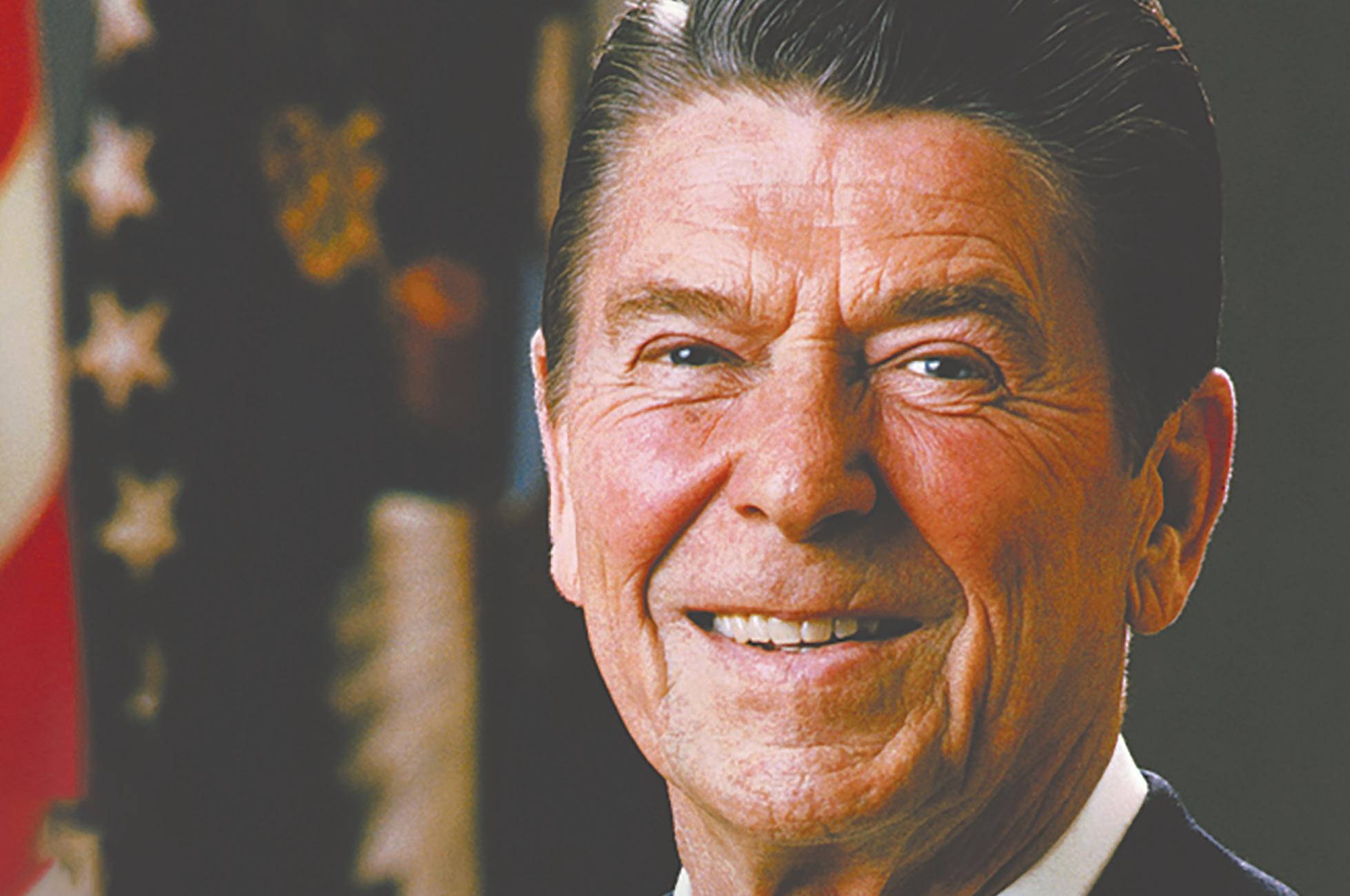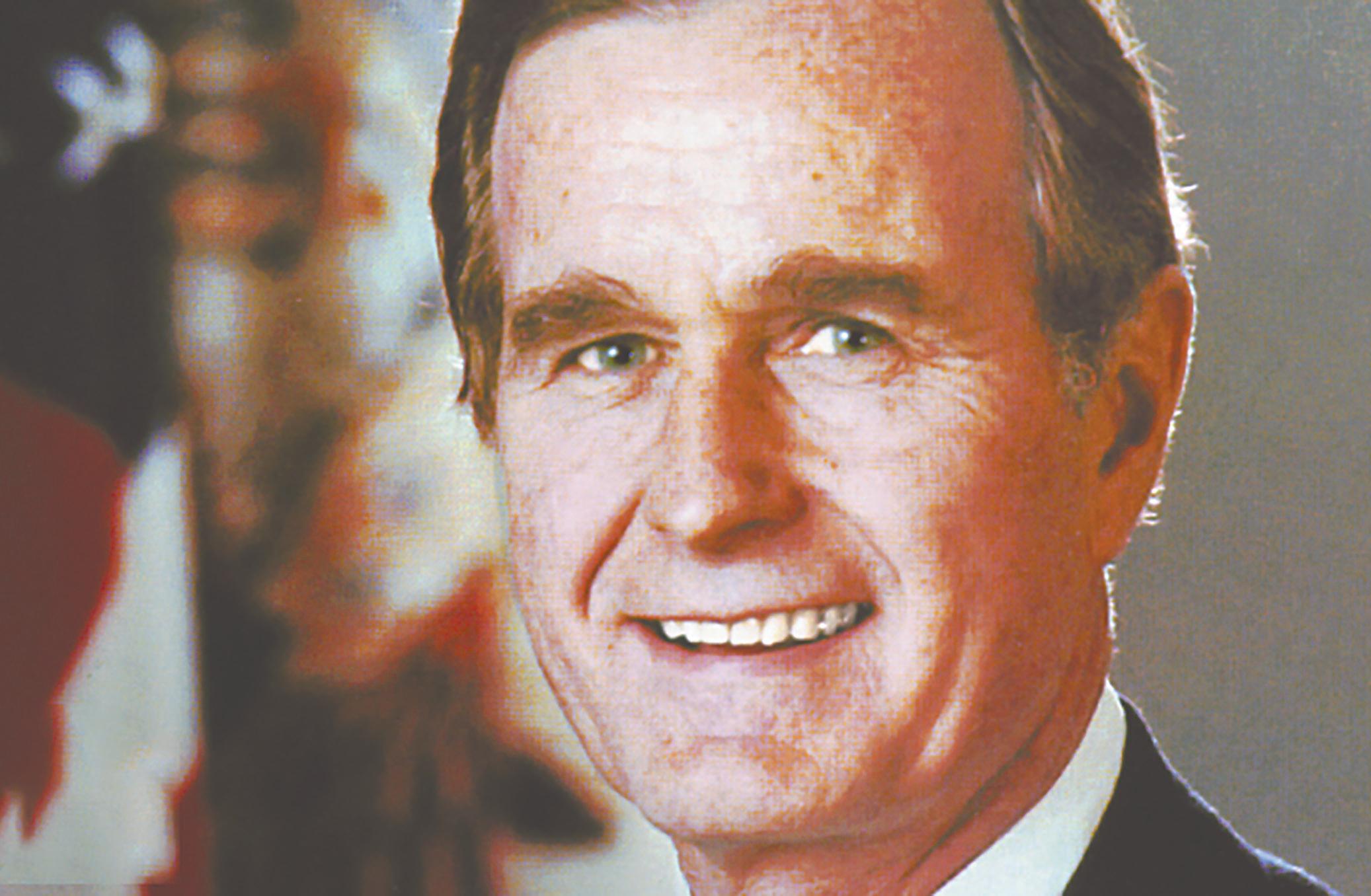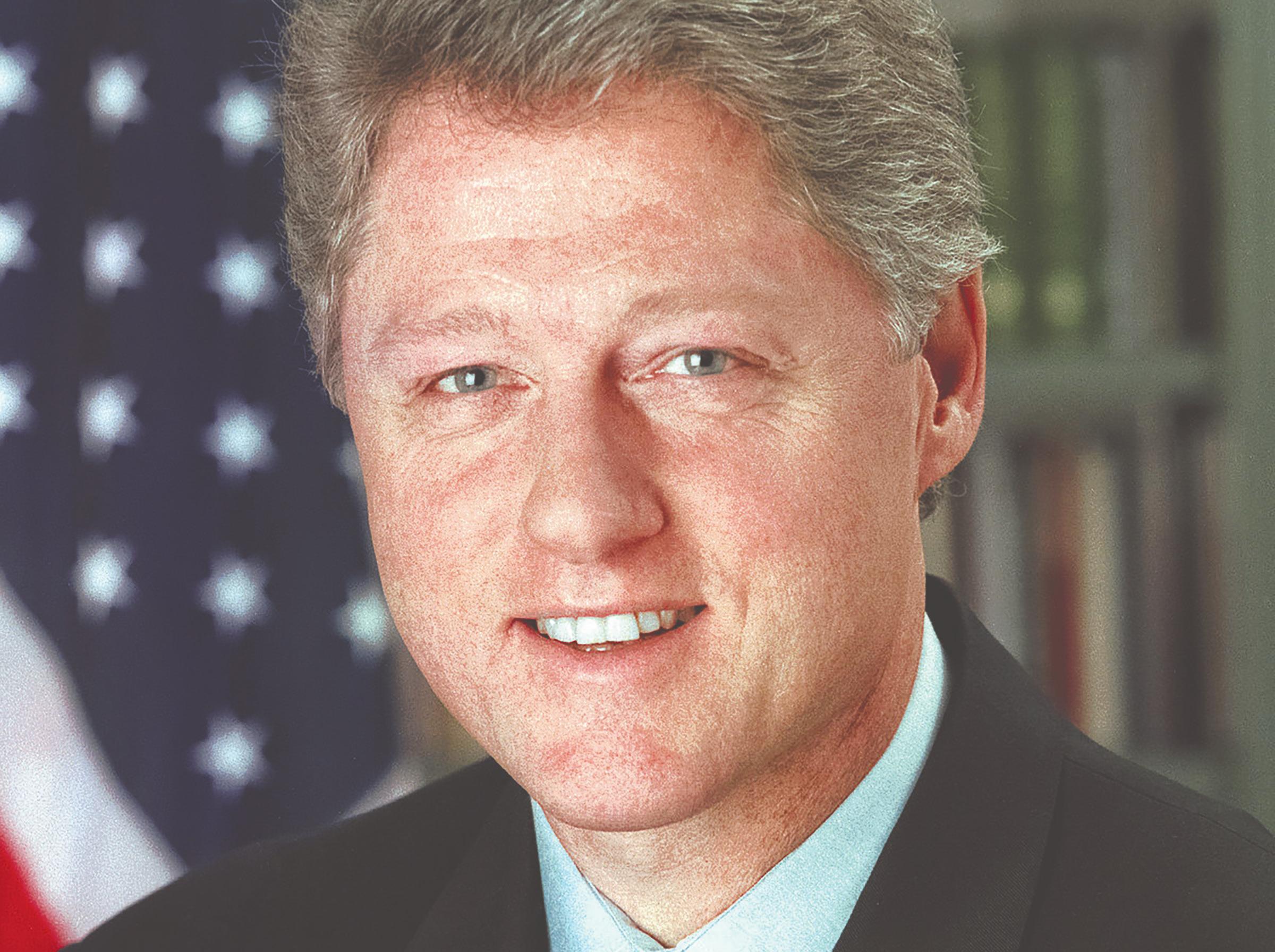
6 minute read
40th
Ronald Reagan was born on February 6, 1911, in a small town called Tampico in Illinois. Reagan grew up in a modest apartment. After graduating from high school, Reagan went to Eureka College in Eureka, Illinois, where he majored in economics. While in college, Reagan was an average student and spent much of his time playing sports and participating in the college drama club. Once he graduated from college, Reagan began working as a sportscaster for a local radio station where he was highly successful due to his catchy lines. This success landed him a spot on a larger radio station calling games for the Chicago Cubs and Big Ten football games. Reagan enjoyed being on the radio, but loved acting more. Reagan soon met with a Hollywood acting agent who set up a screen test for Warner Brothers, which was looking for a young, attractive, male actor to play in a few upcoming movies.
Warner Brothers eventually cast Reagan in 52 movies, including The Killers, Knute Rockne, and Kings Row. Reagan was also involved in Army training films because he was a member of the U.S. Army Cavalry Reserve and his responsibilities included starring in and narrating the training videos.
Reagan took his first political step in 1964 when he gave a speech in support of Republican presidential candidate, Barry Goldwater. Two years later, Reagan decided to try his hand in politics and ran for Governor of California. Reagan dominated the election, defeating the Democratic incumbent by more than one million votes. Reagan tried twice to gain the Republican nomination for President before finally scoring the nomination in 1980. In the 1980 election, Reagan defeated the incumbent, Jimmy Carter. At the age of 69, Reagan was the oldest elected President in
United States history.
In 1981, Reagan delivered one of the most passionate inaugural addresses in history as he told the American he would provide a beacon of hope for those who lacked hope. In March of the same year, Reagan survived an assassination attempt while exiting the Washington Hilton Hotel. The bullet entered the President’s lung, narrowly missing his heart. He would be back in his desk in the Oval Office within a few weeks.
In his first year Reagan’s administration passed sweeping tax-cuts, based on supply-side economics; the idea that tax cuts would result in higher wages, increased consumer spending, and increased investment in the stock market. The plan was popularized in the media as “Reaganomics.” Conversely, Congress passed and Reagan signed into law tax increases of some nature in every year from 1981 to
1987 to continue funding government programs.

For much of his presidency, Reagan dealt with the end of the Cold War. Reagan championed a plan to create the Strategic Defense Initiative, also known as “Star Wars.” A plan in which the United States would build satellites and potentially a space station that would protect it from nuclear weapons fired by rogue nations. He also introduced the Reagan Doctrine, which declared the United States would aid countries in Africa and Latin America that were fighting against Communism. Reagan is given credit for ending the Cold War as he was able to forge a diplomatic relationship with the Soviet Union and convince their leader, Mikhail Gorbachev, to allow the dismantling of the Berlin Wall in Germany, a symbol of Communism in Europe.
Reagan died at the age of 93 on June 5, 2004.

George H.W. Bush was born in Milton, Massachusetts, on June 12, 1924. His father was a Wall Street banker and the founder of a highly successful oil company. George attended the prestigious Andover Academy as a teenager. Although George was accepted to Yale University, he deferred his admission and served as the youngest aviator in American history (to that date) during World War II. He attended Yale after the war and graduated in two and a half years. Bush was an excellent baseball player at Yale and played in two College World Series. In 1945, he married Barbara Pierce. For the next nineteen years, he prospered in the Texas oil industry and became a millionaire.

Bush entered politics in 1964. In 1966, he became a representative in Congress from Texas. In 1970, after being defeated in a bid for the Senate, President Richard Nixon appointed him as ambassador to the United Nations. In 1980, he was appointed by President Gerald R. Ford as the Director of the Central Intelligence Agency (CIA), a position in which he served for about a year. Today, the CIA headquarters are named for him. Bush ran for president in 1980 on the Republican ticket but did not win; instead, he was chosen as a running mate for Ronald Reagan. He served two terms as vice president to Ronald Reagan. Bush served as president during this time for eight hours while Reagan had cancer surgery. He worked mainly on deregulation and the war on drugs.
In 1988, he was elected the 41st president. His presidency came at a time of major political upheaval abroad as the Soviet Union and Berlin
Wall fell. In January of 1991, he authorized the Persian Gulf War after Iraq invaded its neighbor to the south, Kuwait. Urged by the King of Saudi Arabia, who feared Iraq might invade his country, US military forces quickly dispatched of Iraqi forces in Kuwait after a combined land and air attack. Despite a lack of international support for the military measures, the attack made him very popular in the United States, though many believed the attacks should have resulted in an overthrow of Iraqi dictator Saddam Hussein and his government. In 1991, Bush met with Mikhail Gorbachev, leader of the Soviet Union, and signed an arms reduction treaty which reduced each country’s supply of nuclear arms by 35 percent and the Soviet Union’s land-based intercontinental ballistic missiles by 50 percent. This treaty was viewed as a breakthrough in relations between the United
States and the Soviet Union.
Bush also spearheaded the effort for the North American Free Trade Agreement (NAFTA), which eliminated trade tariffs between the United States, Canada, and Mexico, enabling increased trade between the three nations. Many criticized this treaty because of the potential loss of US jobs as companies could now hire cheaper labor from other countries (specifically Mexico). The leg- islation was finally approved in 1993 during the Clinton administration.



In 1993, he was defeated in his bid for reelection by Bill Clinton. Problems with the economy and increased taxes led to a steep decline in his approval rating, which ultimately contributed to this defeat. Bush is the father of the 43rd president, George W. Bush.

William Jefferson Clinton, better known as Bill, was born on August 19, 1946, in a small town called Hope, Arkansas. Bill’s father, William Jefferson Blythe, died a few months before he was born. Bill was raised by his grandparents, while his mother finished nursing school in New Orleans. His grandparents were very strict, and Bill often credits them for instilling in him the importance of education. After earning her nursing degree, Bill’s mother returned and remarried a car salesman whose last name was Clinton, so she changed the family name to Clinton.
In school, Bill excelled academically. After graduation from high school in 1964 he enrolled in Georgetown University where he majored in international affairs. At Georgetown, Clinton became active in school politics and worked as a clerk for Senator Fulbright, who was one of Congress’s most outspoken critics of the Vietnam War. After graduation, Bill won the Rhodes Scholarship, which allowed him to study at
Oxford University in the United Kingdom. Upon completion of the Rhodes Scholarship, Clinton enrolled in Yale Law School where he met his future wife, Hillary Rodham.
After he graduated from Yale, Bill Clinton entered the Arkansas political scene. Clinton was elected state attorney general in 1976, and then in 1978, at the age of 32, he easily defeated Republican Lynn Lowe to become one of the youngest governors in American history. As the young governor of Arkansas, Clinton struggled to get his initiatives accomplished due to his inexperience and mishandling of political situations. His subsequent failure to be reelected was devastating, but Clinton admitted his mistakes and was able to regain the governorship of Arkansas in the next election—a position he held for four consecutive terms.

In the presidential election of 1992, Clinton defeated Republican George H.W. Bush, denying him a second term in office while becoming
America’s 42nd President. In his first term, Clinton struggled to make his mark as Congress was controlled by Republicans. He was able to get the Violent Crime Control and Law Enforcement Act passed that increased the number of policemen and implemented harsher punishments for criminal offenses, as well as the North American Free Trade Agreement (NAFTA), which created a trade alliance between the United States, Canada, and Mexico. He was
William Jefferson Clinton
unable to get his health care reform act passed that would have provided universal health coverage. Nevertheless, his charismatic personality helped to get him re-elected to a second term in 1996. During this second term, Clinton presided over a strong economy. He took measures to lower the unemployment rate, keep inflation low, and to help citizens reach the highest homeownership rates in American history. Clinton is credited with helping the nation reach unprecedented economic prosperity in part due to the “dot-com” boom and the internet’s ability to boost sales and connect people all across the globe.

Clinton’s reputation also suffered from scandal in his personal life. His second term in the White House was dominated by details of infidelity while president, prompting a congressional investigation and near 24-hour news coverage.
In 1998, the Republican-dominated House of Representatives impeached Clinton for perjury and obstruction of justice for his actions. The Senate, however, acquitted him of all charges in 1999.
Today, Clinton delivers speeches throughout the world and is involved in many humanitarian causes through the Clinton Foundation.










